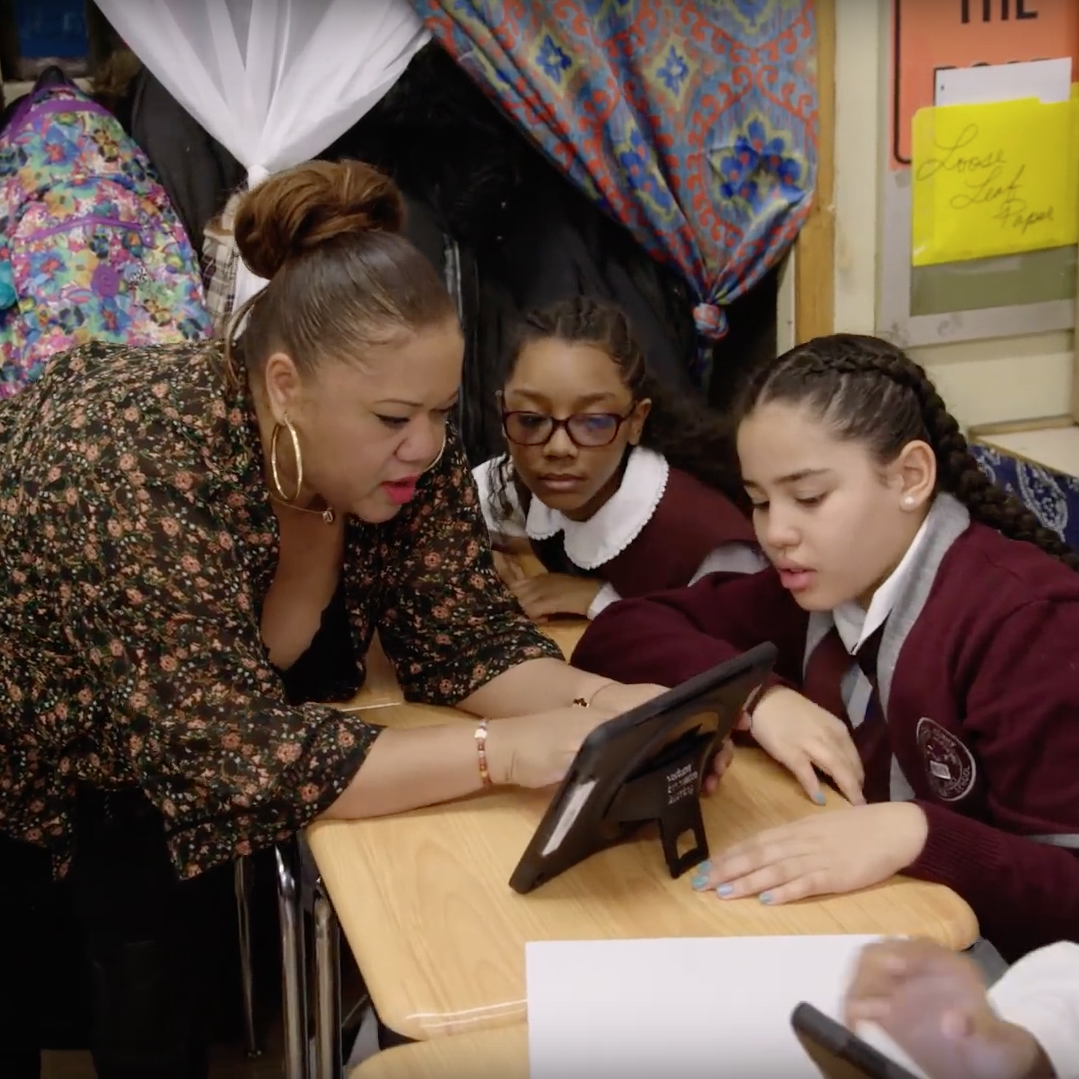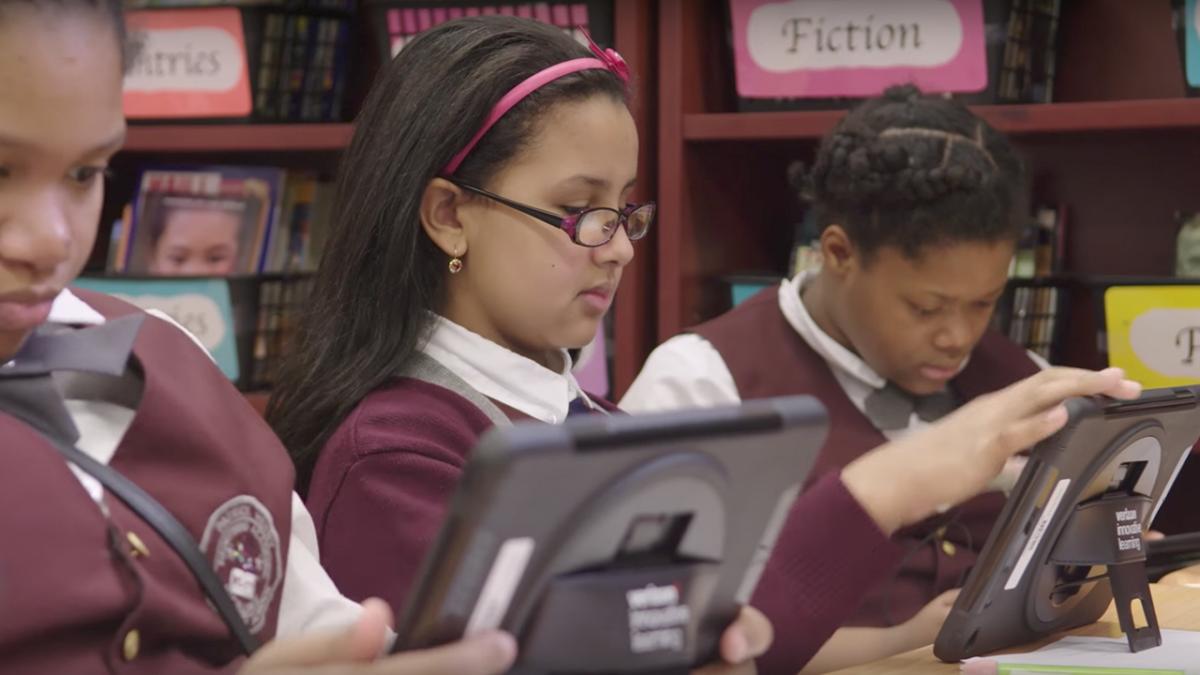Verizon Innovative Learning School Named One of America’s Best Urban Schools
Patrick Henry Preparatory Academy in Harlem Earns National Center for Urban School Transformation’s Highest Honor
School is a lot different today than it was two years ago at P.S. 171, Patrick Henry Preparatory Academy in Harlem, NY. In 2016, when teachers wanted students to use computers in class, they rolled in the computer cart. Students lined up, took the laptops from the cart and brought them back to their seats. At the end of class, students lined up again to put the laptops back in the cart so they could be rolled over to the next classroom.
Today, all the students and teachers have their own tablets with always available access to the internet. Students are using technology in their daily work in all their classes. They’re using the internet to do research, video to express creativity and virtual reality to explore the world. Teachers are adept at integrating technology as a powerful tool to help students master skills they’ll need to succeed in the digital economy. And the school is being completely transformed.
P.S. 171 is in its third year of participating in a holistic program that gives free technology, internet access, professional learning and STEM curricula to under-resourced schools in America. Called Verizon Innovative Learning, the program is offered by the Verizon Foundation in partnership with the leading educational nonprofit Digital Promise.
This is one factor contributing to the school’s being named one of America’s Best Urban Schools (ABUS) by the National Center for Urban School Transformation. As a Gold level winner, P.S. 171 is one of only four schools in the country to achieve this prestigious honor in 2018. It is one of only three schools in New York City to earn the ABUS designation since it was created 12 years ago.
“For some schools, the Verizon Innovative Learning schools program is just the spark needed to ignite tremendous change,” says Justina Nixon-Saintil, director of corporate social resonsibility for Verizon. “P.S. 171 is a great example of this. They had all the elements lined up, including dynamic leadership, dedicated faculty and a school-wide commitment to do everything possible to make sure their students have the best education. So when we came in and provided the devices, connectivity and teacher training, they took off like a rocket.”
ABUS schools are recognized for their high rates of academic proficiency for every racial/ethnic group, high achievement rates for English learners, high degree of proficiency for students with disabilities, excellence in STEM education, high attendance rates, low rates of out-of-school suspension, high graduation rates, college credit and AP course completion, and dropout recovery.
Dimitres Pantelidis, Principal of P.S. 171 for the past 18 years, says, “We have been working toward this honor for many years, and we are ecstatic about it. Having the ability to employ technology to enhance student learning is a great asset. With a deeper understanding of the digital environment, our students become intuitive to new contexts, confident and competitive to succeed in high school, college and in the workforce. The P.S. 171 school community works collaboratively on a daily basis to ensure our students are learning to overcome any challenges in the digital world. We have already made substantial progress by providing equity and access for all students.”
Verizon Innovative Learning
Millions of American students lack the access to technology and the skills they need to succeed in the digital world1. Since 2012, Verizon has been working to help solve this problem holistically through a transformative program called Verizon Innovative Learning.
Verizon Innovative Learning provides free technology, free internet access, and hands-on learning experiences to help give under-resourced students the education they deserve. Powered by a next-gen, technology-infused curriculum that fundamentally changes the way teachers teach and students learn, Verizon Innovative Learning is giving kids the ability to do more in this world. Students are showing improvement in math and reading2, and they’re more engaged in school3. More information is available here.
1Pew Research Center Analysis of 2013 American Community Survey (IPUMS).
2Westat March 15, 2017 Research.
3Across all VIL programs that reported data in 2017.



